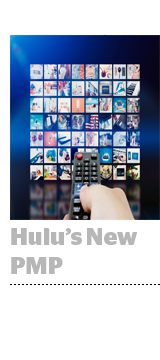On Jan. 1, 2019, Hulu will release an automated private marketplace that will allow advertisers to bid on Hulu inventory without going through the additional steps of working with Hulu’s sales team. Instead, advertisers can use their own DSPs or trading desks to plug into the marketplace.
The PMP will initially house standard 30-second spots, and Hulu has not disclosed the amount advertisers will have to pay for access. The new marketplace is a departure from the programmatic buying platform Hulu released in 2015, since advertisers still had to work with Hulu’s sales team to adjust any inventory deals they had in place. That said, an advertiser still has to receive an invite from Hulu’s sales team in order to gain access to the biddable environment within the new PMP.
Agencies and ad tech companies welcome the change.
“Our company, The Trade Desk, and other companies have wanted Hulu to open up more private marketplace inventory over the last two to three years,” Mark Douglas, CEO of ad platform SteelHouse, told AdExchanger. “To see them start to really embrace it, I think everyone is going to be happy about that.”
The new PMP acknowledges that marketers and brands want to activate audiences in connected TV, said Tim Sims, SVP of inventory partnerships at The Trade Desk.
“By making inventory available [programmatically,] it creates this marriage between premium content and first-party data on the advertiser side,” Sims told AdExchanger.
The marketplace is in step with industry trends, as advertisers and agencies have become more accustomed to buying programmatically. But the motivations behind releasing this new PMP might not be “as stated,” Douglas said.
“Last January, Hulu didn’t sell out their upfront for the first time in the company’s history,” Douglas said. “And it’s not because there wasn’t demand, it’s because they’re growing faster than the demand.”
In previous years, Hulu sold out their upfront for the year in January and so there was nothing left to sell. Douglas said Hulu might have projected that it will not sell out its upfront again this January, prompting the creation of a new PMP.
Hulu did indeed have a record-breaking year. In May, it surpassed 20 million subscribers, up three million from the 17 million it reported in January 2018. By allowing self-serve buying, especially for inventory that doesn’t sell at its upfront, Hulu is helping buyers and itself to keep up with the competition.
“It’s a super positive thing for both brands and agencies,” Sims said.














